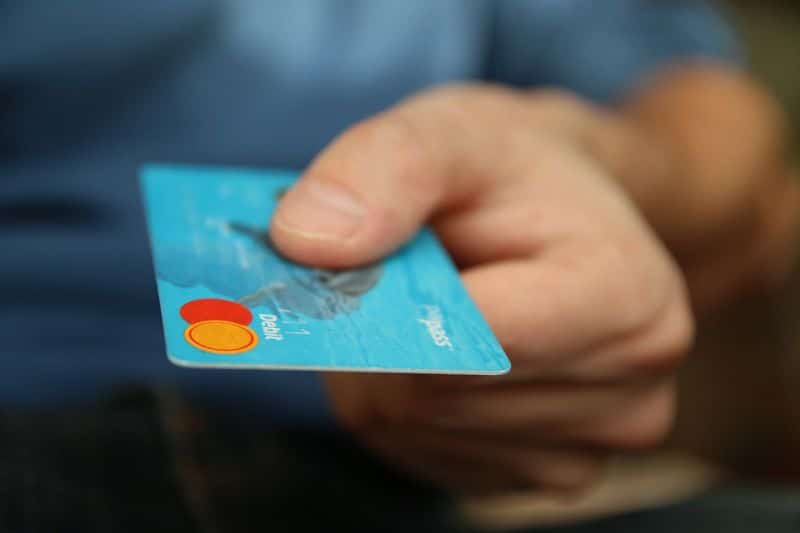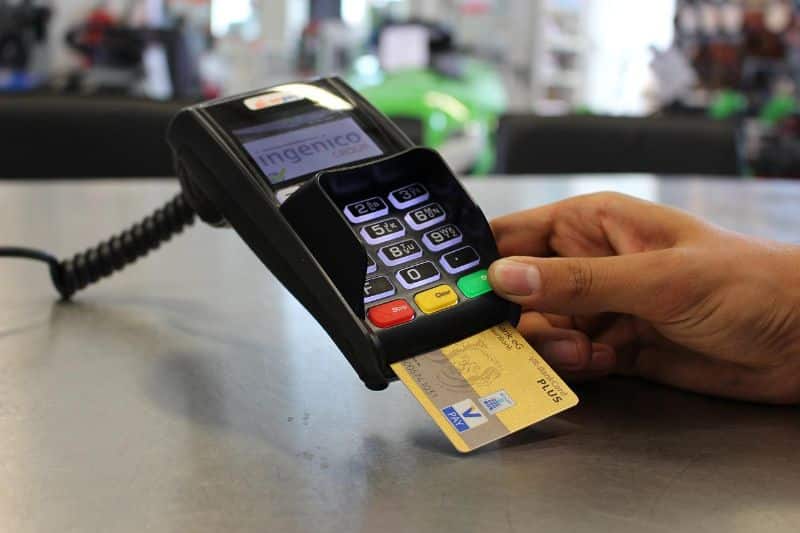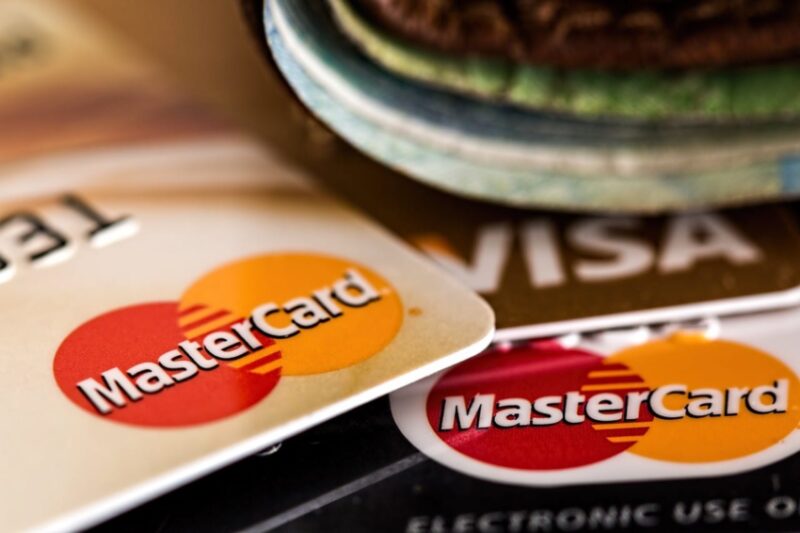Trans Union puts the number of adults using credit cards in the US at over 191 million as of 2021. But what is an unsecured credit card? Do you know the difference between an unsecured and a secured one? Read on to figure it out.
In this time and age, almost everyone is using plastic money. Whether it’s your normal debit card or that credit card, plastic money has become quite convenient for both young and old.
But have you ever stopped to think about what kind of credit card you use? Is it secured or unsecured? Now, I know that got your mind spinning. Well, don’t worry! We will find out that in a second.
The truth is most of the credit cards people use are unsecured credit cards. Is that news? I know you might not have thought about it that way.
So, what is an unsecured credit card? That’s what we are about to find out. We will explore what unsecured credit cards are, how they work, and compare them with their secured counterparts.
What is an Unsecured Credit Card?

An unsecured credit card is a type of payment card issued by financial institutions, requiring zero collateral or security deposit from the cardholder. It is usually offered by institutions like banks or credit card companies, giving you access to a predetermined credit limit. And according to Trans Union, there are over 460 million credit cards in the US.
With a credit card, you get the chance to buy products or services on credit, only to pay later, usually at the end of the month. But are unsecured credit cards given to everyone?
Well, absolutely not! There are some qualification criteria that we shall look at later. But perhaps the most important thing is that your eligibility for this kind of credit card is your creditworthiness.
How Does an Unsecured Credit Card Work?
Unsecured credit cards work on a revolving credit basis. What does this mean?
The cardholder can borrow money up to the credit limit and repay it over time, either in full or in minimum monthly payments. Interest is charged on the outstanding balance, and unpaid balances carry over to the next billing cycle, accumulating interest charges.
The good thing about revolving credit is that it’s open-ended. This means that it has no specific end date.
In other words, as long as you use your credit limit and repay the balance, you can use the credit line forever. That’s unless something else causes the credit card account to be closed.
The credit limit is usually the maximum amount of credit that the card allows you to use. This means there are some purchases you can’t make based on your card as they go beyond the set limit.
And once you make purchases, you are liable to make monthly payments, as stipulated, in each billing cycle. These payments might vary with each month as they are calculated based on the amount of purchases you make.
Note: Making on-time monthly payments is crucial. It helps you to avoid late payment penalties and fees that only add to your total bill. In addition, prompt payments add to your credit score. Remember, your payment history will account for up to 35% when calculating your credit score.
Qualifications for an Unsecured Credit Card

So, who qualifies for an unsecured credit card? Let’s find out;
The first eligibility requirement for an unsecured credit card is age – you must be over 18 years old. The other requirements, like a steady income source, a good credit score, and a low debt-to-income ratio, will follow.
Lenders usually assess these factors to determine the applicant’s creditworthiness and the level of risk involved in extending credit. As such, you need to show your payment capability in all aspects.
But if you currently don’t qualify for an unsecured card because of a poor credit score, you can start with a secured one. From here, make prompt monthly payments and grow your credit score. With time, you will have a better chance of qualifying for an unsecured credit card.
See Related: Credit Card Refinancing vs Debt Consolidation: What is the Difference?
Main Features of Unsecured Credit Cards
Unsecured credit cards come with several key features that make them popular among consumers:
1. Credit Limit
Each unsecured credit card has a predetermined credit limit, which represents the maximum amount the cardholder can borrow. Usually, this limit will depend on your creditworthiness, mostly determined by your credit score. The higher the score, the higher the credit limit.
2. Interest Rates
Credit cards have an annual percentage rate (APR), which determines the cost of borrowing. And different card issuers will have different APRs. For instance, while Capital One’s QuickSilverOne offers a 30.49% variable APR, Aspire Cash Back Reward card offers a fixed rate of 29.99% or 36%. Lower APRs are generally preferred to minimize interest expenses, although you should also consider the annual fee, the introductory APR, and other features of a card.
3. Rewards and Benefits
Many unsecured credit cards offer rewards programs. These programs allow cardholders to earn points, cashback, or other incentives based on their spending habits. So, before making your decision on the card to apply for, also consider the type of benefits it offers.
For example, the Chase Freedom Unlimited card offers cashback on purchases up to $300, with a $0 annual fee and a variable APR of 20.24% – 28.99%. On the other hand, the Capital One SavorOne card offers a $200 cash back with a $0 annual fee and a variable APR of 19.99% – 29.99%. So, the choice is yours.
4. Grace Period
Unsecured credit cards often provide a grace period on your payments. This is the period when no interest is charged on purchases if the balance is paid in full by the due date.
5. Additional Fees
Some credit cards may have annual fees, late payment fees, or foreign transaction fees. It’s essential to review the terms and conditions to understand the fee structure.
As seen above, cards like the Capital One SavorOne and the Chase Freedom Unlimited have zero annual fees.
Pros of Unsecured Credit Cards

Unsecured credit cards offer several advantages to consumers. These include:
- Flexibility: Unsecured credit cards provide the flexibility to make purchases and access credit when needed without requiring upfront deposits.
- Building Credit History: Responsible use of an unsecured credit card can help individuals build a positive credit history and improve their credit scores over time.
- Convenience: Credit cards are widely accepted, making them convenient for various transactions, including online shopping and travel reservations.
- Rewards and Perks: Many unsecured credit cards offer rewards programs, enabling cardholders to earn cash back, travel miles, or other benefits based on their spending.
Cons of an Unsecured Credit Card
While unsecured credit cards have their advantages, it’s important to consider the following drawbacks:
- Higher Interest Rates: Unsecured credit cards tend to have higher interest rates compared to secured credit cards or other forms of credit. This can result in significant interest charges if the balance is not paid in full.
- Potential Debt Accumulation: If not used responsibly, unsecured credit cards can lead to debt accumulation and financial strain. Usually, this happens when minimum monthly payments are not made on time, leading to penalties and more interest.
- Impact on Credit Score: Late payments or high credit card balances can negatively impact an individual’s credit score. It’s, therefore, quite important to ensure that you manage your credit responsibly.
See Related: What Is Credit Card Refinancing?
Difference between Secured and Unsecured Cards
By now, we have an in-depth knowledge of what secured credit cards are and how they work. But what differentiates them from their secured counterparts?
Well, the primary difference between secured and unsecured credit cards lies in the requirement for collateral. For starters, secured credit cards require a security deposit, which serves as collateral and determines the credit limit. This means that you can only make purchases worth your deposit.
On the other hand, unsecured credit cards don’t require collateral. They rely solely on the applicant’s creditworthiness to determine the credit limit.
Why Opt for Unsecured Credit Cards?
Choosing an unsecured credit card may be beneficial for several reasons. For instance;
- There’s no Collateral Required: Unlike secured credit cards, unsecured cards don’t demand collateral. This makes them accessible to individuals who don’t have significant assets or savings.
- Building Credit: Responsible use of an unsecured credit card allows individuals to establish or rebuild their credit history. As such, it helps to improve their overall creditworthiness.
- Convenience and Flexibility: Unsecured credit cards offer convenience and flexibility in managing day-to-day expenses, making purchases, and accessing credit. You don’t have to worry too much about what your account balance is as long as you can make those monthly repayments on time.
Alternatives to Unsecured Credit Cards

While unsecured credit cards are popular, there are alternative options worth considering. If you want credit, for whatever reason, but your credit history doesn’t allow you to get an unsecured credit card, here are several viable options.
1. Secured Credit Cards
Individuals with limited or poor credit history can opt for secured credit cards, as mentioned above. These types of cards require you to make a deposit first on your account, which acts as your collateral.
Usually, these cards help you to grow your credit history in anticipation of getting an unsecured card later. So, if you have a poor or zero credit history, this can be an excellent way to build or rebuild one.
However, you should note that the much you can charge on your card is limited to the amount of your deposit.
2. Debit Cards
Debit cards allow individuals to spend money directly from their checking accounts. Now, this helps to limit the risk of accumulating debt. A debit card is a convenient way to make your purchases, although this will be charged to your account.
See Related: Charge Card vs Credit Card: 5 Main Differences
3. Prepaid Cards
Prepaid cards function similarly to debit cards. However, they require users to load funds onto the card in advance, offering control over spending. These cards can function just like your regular debit card, although there might be some additional fees.
4. A Personal Loan
Getting a personal loan is another alternative for those looking for credit. And like an unsecured credit card, a personal loan demands a good credit score. However, you can still look for lenders who offer bad credit personal loans – the interest on such loans will be higher.
The good thing about a personal loan is that you can use it for larger purchases. For example, if you are paying for major home improvements, refinance an existing loan, or even consolidate your debt, a personal loan works best.
5. Credit Builder Loans
Some financial institutions offer credit builder loans designed to establish or improve credit history through responsible repayment. These types of loans operate in reverse compared to normal or traditional loans.
What do we mean?
Instead of getting a loan and start making monthly repayments, it’s quite the opposite for credit builder loans. Here, you make fixed repayments first, then later get a loan at the end of the agreed period.
Key Take Away
Unsecured credit cards provide individuals with a convenient and accessible means of managing their finances and accessing credit without requiring collateral. They offer flexibility, the potential to build a credit history, and various benefits and rewards.
However, it’s crucial to use them responsibly, keeping in mind the potential cons, such as higher interest rates and the risk of debt accumulation. Exploring alternatives can also be valuable depending on individual circumstances.
FAQs
Can I get an unsecured credit card with bad credit?
It may be challenging to get approved for an unsecured credit card with bad credit. However, there are credit cards specifically designed for individuals with poor credit or no credit history, such as secured credit cards or credit cards with higher interest rates. Here, you can try cards like Chime Credit Builder Visa Card or Grow Credit Mastercard.
What happens if I don’t pay my unsecured credit card bill?
It will be considered a delinquent account, and the credit card issuer may report it to credit bureaus. This can negatively impact your credit score and may result in late payment fees and interest charges.
Can unsecured credit cards help improve my credit score?
Yes, responsible use of an unsecured credit card, including making timely payments and keeping credit card balances low, can positively impact your credit score over time.
Are unsecured credit cards safer than secured credit cards?
Unsecured credit cards and secured credit cards have their risks and benefits. While unsecured credit cards don’t require collateral, they may have higher interest rates, making it essential to manage credit responsibly.
